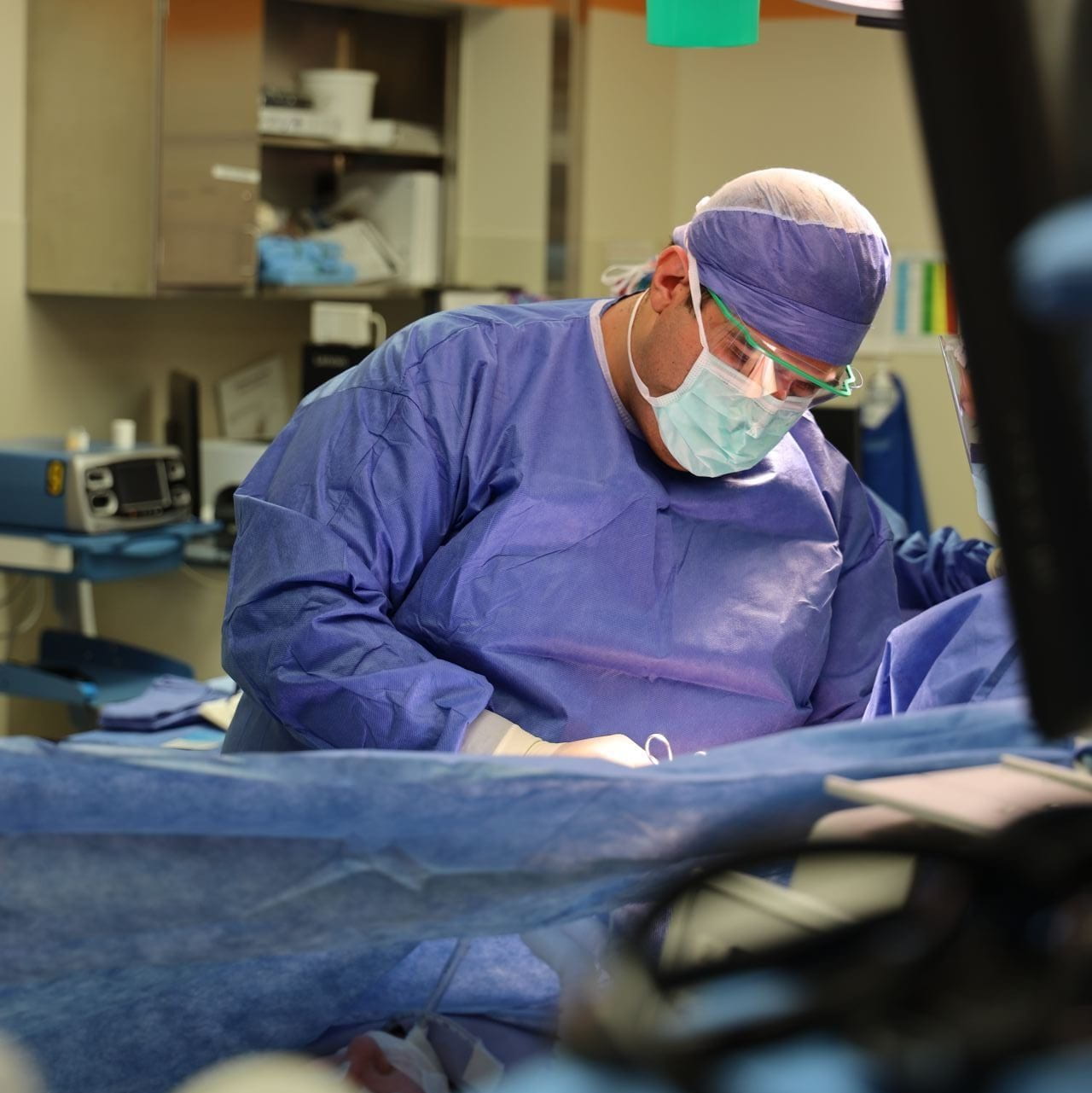
Hirschsprung disease is a condition that affects the colon and causes problems with passing stool. Hirschsprung disease is a congenital condition, meaning that it is present at birth. Nerve cells in the bowel usually control how the bowel works. When some of these nerves are missing, the bowel does not work as well. Stool does not move through the bowel normally, which causes blockages.
In most cases, Hirschsprung disease is detected soon after birth. Sometimes, mild cases are not detected until later in childhood. In rare cases, Hirschsprung’s disease is first diagnosed in adulthood.
Treatment includes surgery to bypass or remove the affected part of the colon. The Pediatric Colorectal Center at Washington University specializes in caring for children with Hirschsprung disease. Our team provides personalized care based on the needs of your child and your family.
The signs and symptoms of Hirschsprung disease vary depending on the severity of the condition and the age of the child.
In newborns, the most obvious sign of Hirschsprung disease is failure to have a bowel movement in the first 48 hours after birth.
The main symptoms of Hirschsprung disease include:
- Swelling of the abdomen or belly
- Chronic constipation
- Vomiting
- Failure to grow or thrive
- Unexplained fever
Constipation can be normal for children. Healthy infants and children can have problems with bowel movements and passing stool. Children with Hirschsprung disease usually do not respond to constipation medicines the way other children do.
Our specialists provide personalized evaluation for each child. We look at the following when diagnosing Hirschsprung disease:
- Physical exam
- Family history
- Test results
There are different tests we can use to diagnose Hirschsprung disease. Which tests are used depends on your child’s condition and needs. Our team of expert pediatric gastroenterologists, radiologists and surgeons will work with you to make sure your child gets the right tests.
Tests for Hirschsprung disease may include:
- Rectal biopsy: A procedure that takes a small piece of tissue from the rectum for examination under a microscope.
- Abdominal x-ray: A picture created by using a small amount of radiation to help us see what is happening in the bowels.
- Anorectal manometry: A test that uses pressure sensors and balloons to measure how your child’s rectum is working.
- Other types of tests and imaging depending on your child’s condition.
Treatment for Hirschsprung disease requires surgery. The type of surgery depends on your child’s condition, as well as your family’s needs and goals. Our pediatric colorectal surgeons will talk with you about the surgical options and help you find the best solution for your situation.
The two main types of surgery for Hirschsprung’s disease are a pull-through procedure and ostomy surgery.
- Pull-through procedure: A surgeon removes part of the large intestine that is missing nerve cells. Then the surgeon connects the healthy part of the intestine to the anus so the child can have normal bowel movements.
- Ostomy surgery: The normal movement of stool is rerouted through the abdominal wall so that stool can leave the body without passing through the anus. The stool passes through an opening in the abdomen called a stoma.
Most children can have a pull-through procedure. Sometimes, a child might need ostomy surgery to get better before having a pull-through procedure. In some cases, ostomy surgery might be the best choice. Your child’s health and your family’s happiness are our priorities. We will help you find the right solution for your child’s needs.
After surgery, our team of specialists will provide follow-up care to make sure your child has a full recovery and the best possible outcome.
Hirschsprung disease happens when the nerve cells toward the end of a child’s bowel stop growing before birth. It is a congenital condition, meaning that it is present at birth. The cause of Hirschsprung disease is not clear, but genetic defects and family history can increase a child’s chance of developing the condition.
When you come to the Washington University Pediatric Colorectal Center, we will talk with you about your goals and your child’s condition. We will do any necessary tests, and our team will work together with you to develop a plan for your child’s treatment.
At the Washington University Pediatric Colorectal Center, we provide high-quality care to children with complex colorectal issues, including Hirschsprung disease.
Goal-setting is an important part of our practice. We personalize your child’s care based on your family’s goals and what is best for your child’s health.
You have access to nationally-recognized experts in pediatric colorectal care—including gastroenterology, radiology, and surgery—at the Pediatric Colorectal Center. Our team works together with you to achieve your goals and find the best solution for your child.
Book an Appointment
To talk to a member of the Pediatric Colorectal Team,
please call 314-454-6022 or request an appointment online.